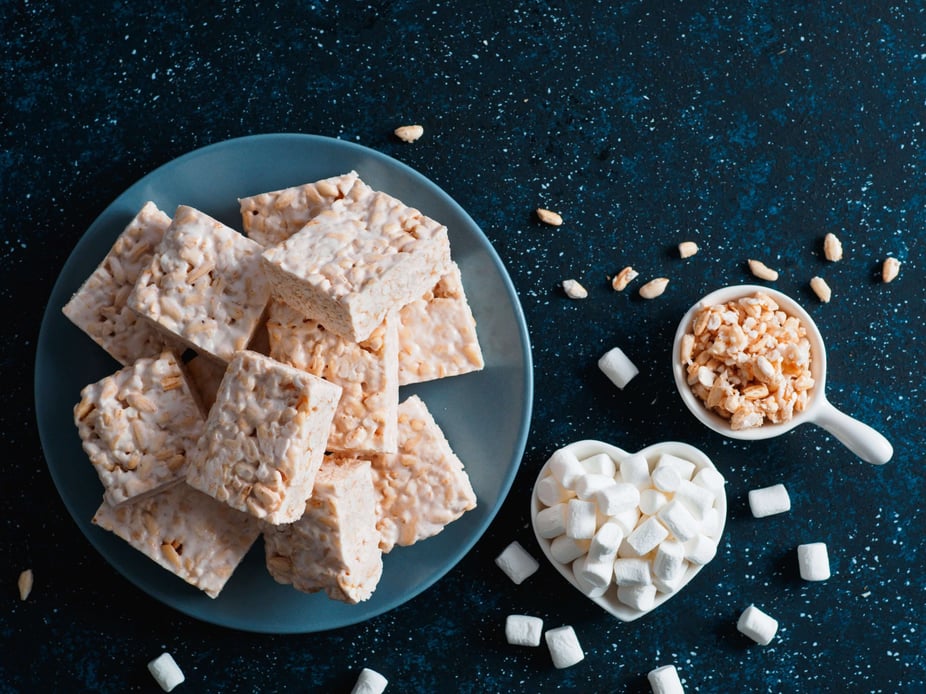On the most basic level, the food we eat is meant to give us strength and nourishment, but it can be hard to really determin the foods that may weaken your immune system. Look it up in the dictionary and “food” is described as: “a nutritious substance that people or animals eat or drink or that plants absorb in order to maintain life and growth.”
We’ve known for a long time now this isn’t necessarily the case with all that we eat. Unlike animals, who subsist on what they find in their environment, humankind has long since stopped subsisting on food in its most basic, natural form, or what we ourselves can grow. But a new study about foods that weaken our immune system adds further proof of how far we have come.
The study, recently published in the International Journal of Environmental Research and Public Health, reveals that some of the food we eat is not only far from nourishing, but actually detrimental to our body's immune system, reducing our protection from disease and infection. According to the study, much of this has to do with the preservatives commonly found in some of the processed foods we - or at least our kids - like best: Rice Krispies Treats, Pop-Tarts and Cheez-Its, to name a few. 
In fact, according to the study, more than 1000 foods - or “edibles” - are harmful to the immune system due to unsafe preservatives. This post aims to shed more light on these findings, along with some essential facts to help keep you and your loved ones safe.
What you need to know: TBHQ and PFAS
The majority of frequently consumed processed foods contain a chemical known as TBHQ, or tertiary-butylhydroquinone, a dominant preservative in the food industry. Beyond its primary purpose of preventing food from rotting to extend its shelf life in your local supermarket, it offers zero actual benefits to the consumers.
This long shelf life, however, comes at a cost. Results from new tests conducted by researchers at Environmental Working Group (EWG) using data from the Environmental Protection Agency’s Toxicity Forecaster, as well as several other studies (Turley AE et al; Boss AP et al; Eskandani M, et al), revealed that the presence of TBHQ in our food negatively influences some cell functions.
Equally surprising is the prevalence of TBHQ in such staples like cooking oil, nuts, crackers and breads, as well as frozen foods (e.g. fish) and various fast foods.
Ingesting a single gram of TBHQ is enough to cause vomiting, nausea, a sense of suffocation, ringing in the ear, and many more.
Another compound that's found in most processed foods is PFAS, or polyfluoroalkyl substances. Scientists assessing the effects of PFAS discovered that it's transferred from food packaging or processing equipment to the meal itself.
In one study from 2017, nationwide tests revealed that almost all fast-food chains use packaging like bags, wrappers, and boxes that are coated with highly fluorinated chemicals. Meanwhile, human epidemiological studies revealed that PFAS, like TBHQ, also decreases the effectiveness of vaccines and suppresses immune function.
Foods commonly known to contain PFAS include anything that comes in grease-resistant paper, fast food containers/wrappers, microwave popcorn bags, pizza boxes, candy wrappers and nonstick cookware. An example of this is most bake-ready products such as Pillsbury biscuits or cinnamon rolls. It may be important to even check the contamination in your local drinking water.
The problem with the FDA
In the US, food safety is regulated by the Food and Drugs Administration (FDA). The FDA is in charge of approving the substances food manufacturers add to packaged food before selling it to the public.
Here’s the rub: The US FDA has been criticized as not being strict enough when it comes to chemical additives to foods. Many European countries ban substances that are still allowed in US food products. Examples include carrageenan (an emulsifier), azodicarbonamide (a whitening agent and dough conditioner use in bread), and food dyes yellow no. 5, yellow no. 6 and red no. 40.
While manufacturers are given a long list of compounds to avoid to ensure they aren’t producing foods that harms the public, they can always petition to introduce new ones. This requires submitting and meeting the requirements of a form called a Food Additive Petition (FAP). To get approved, the FAP must contain sufficient proof that the additive is safe for public consumption. Once this requirement has been met, the FDA will regulate how the compound must be used.
The problem is that while this method may be an effective way to ensure the most harmful chemicals are eliminated, the reality is even small amounts can build up in our bodies leading to unsafe levels. If you are regularly consuming chemicals that the FDA has deemed as “safe” in small amounts (often unknowingly because, let’s face it, carefully reading food labels can be daunting), levels of some of these chemicals can build up in your body over time, presenting significant health risks.
There have also been cases of harmful chemicals that have slipped past the FDA's radar and into food for public consumption. One example, in particular, is the popular soda beverage Mountain Dew, which used to contain brominated vegetable oil (BVO) before Pepsi-Co removed it a few years ago. BVO blocks receptors on certain cells which can lead to endocrine problems, autoimmune conditions, reproduction problems, and more.
Avoiding foods that hurt your immune system
When it comes to our immune system, studies have shown, and continue to prove, how much environmental and lifestyle factors, like food, toxins and lifestyle, matter. The coronavirus pandemic has further focused public attention on this issue, as viruses are also considered a trigger that can lead to autoimmunity for some.
As EWG vice president for science investigations and lead author of the new study, Olga Naidenko, Ph.D., put it: "Before the pandemic, chemicals that may harm the immune system's defense against infection or cancer did not receive sufficient attention from public health agencies. To protect public health, this must change."
New studies like this one empower us to make more informed decisions about the food we eat, as we deepen our understanding of how our choices impact our health - and how to keep our loved ones safe. Following these tips will help:
Limit foods that come in plastic packaging or bags lined with non-stick coating (e.g. microwave popcorn). While the ingredient list may not contain harmful chemicals, dangerous substances from the packaging can leech out into the food.
Read labels! Although it can be daunting, as acknowledged above, it is a very good habit to adopt. Avoid foods listing tert-butylhydroquinone, or TBHQ, as an ingredient.
Wash your produce before consuming and select Certified Organic alternatives, when feasible, to reduce overall pesticide intake.
If you are going to consume processed foods, counteract their risks by filling 80% of your diet with whole, unprocessed foods. Many fruits and vegetables and unprocessed grains contain high amounts of healthy compounds called polyphenols which have been shown to improve digestion, boost brain health, and protect against heart disease, type 2 diabetes, and even some cancers.
Reduce your overall chemical exposure by familiarizing yourself with the Environmental Working Group’s (EWG) Dirty Dozen list for the current year which outlines which produce are the most exposed to harmful pesticides, and opt instead for the less contaminated Clean Fifteen.
Happy, healthy eating!
*This post has been reviewed by a board-certified medical professional.


